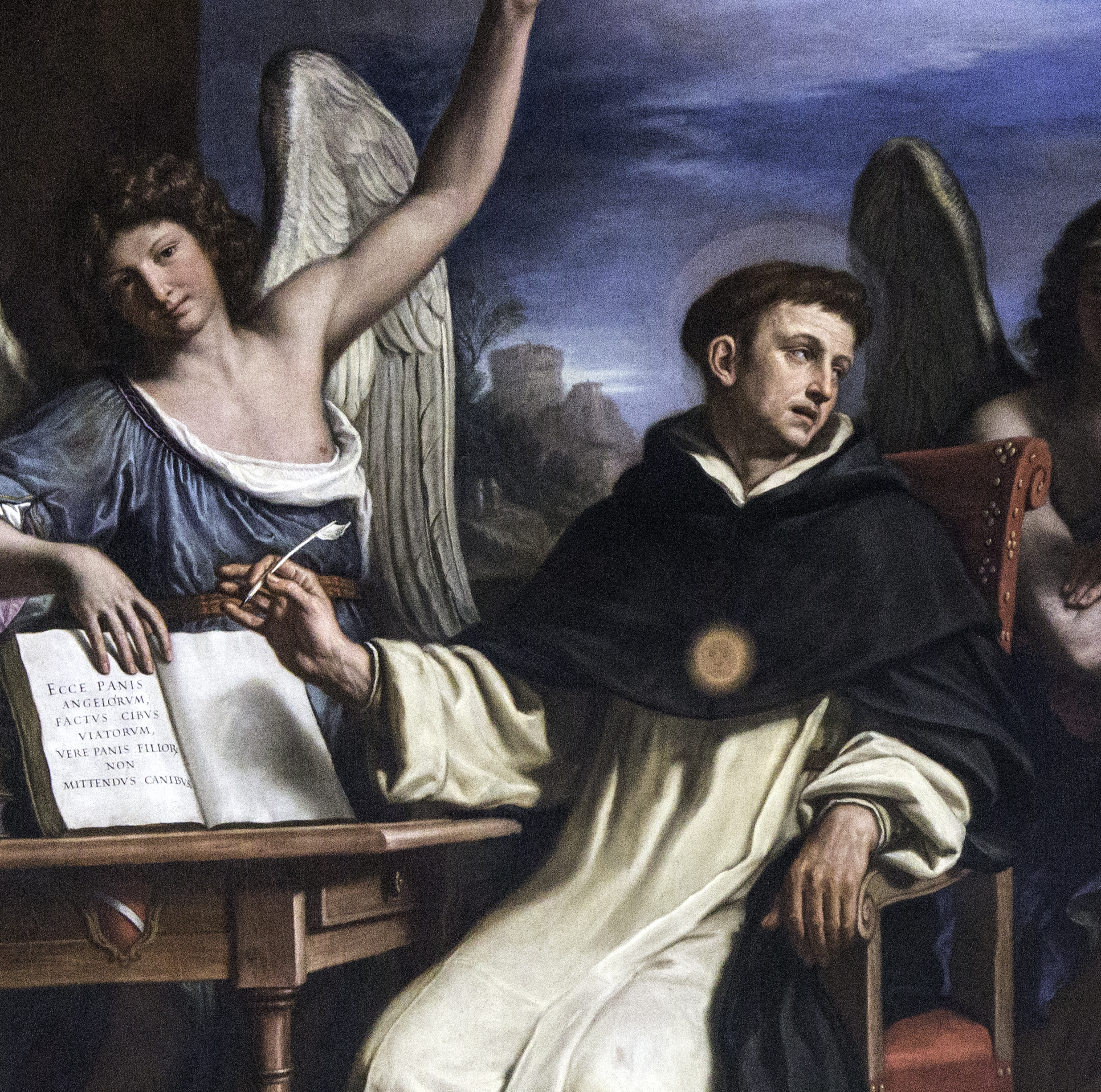Chapter 22: The Sources¶
It is sometimes thought that the treatise of St. Thomas on the angels is an a priori construction, having as its sole foundation the book of Pseudo-Dionysius, called De coelesti hierarchia. This is a misconception. Scripture itself is the foundation on which St. Thomas rests. Scripture gives him the existence of angels, their knowledge, their number, their differences in good and evil, their relations to men. Pertinent and numerous texts appear already in the Old Testament, in Genesis, Job, Tobias, Isaias, Daniel, the Psalms. Angels appear in the New Testament, at our Lord’s birth, Passion, and Resurrection. St. Paul enumerates them: thrones, dominations, principalities, powers. 593.
Here lies the foundation of the treatise on the angels. These testimonies show that the angels are creatures indeed, but higher than men. Though at times they appear under a sense form, the common term by which they are called, i. e.: spirits, justifies us in saying that they are purely spiritual creatures, notwithstanding the difficulties which several early Fathers found in conceiving a creature to be real unless it had at least an ethereal body.
To this spirituality of the angels, St. Thomas gave greater scope and precision. By distinguishing also in the angels the orders of nature and grace, by deduction from the interior life of God, from the character of the beatific vision, which is a supernatural gift for any intelligence inferior to God, from the doctrine on grace and the infused virtues, St. Thomas defended and explained the tradition, summarized thus by St. Augustine: 594 Who gave to the good angels their good will? No one but He who, at their creation, founded their nature, and, simultaneously, gave them the gift of grace.
In this outline of the treatise on the angels we will emphasize its essential principles, noting opportunely the opposition raised by Scotus, 595 and in part by Suarez, who, as often elsewhere, searches here also for a middle ground between St. Thomas and Scotus. These differences appear chiefly in the doctrines relating to the nature of angels, their modes of knowing and loving, and to the manner of their merits under grace. Those who seek detailed exposition can easily find it in the works cited. Our chief interest in this treatise on angels is to clarify from on high the treatise of St. Thomas on man.
